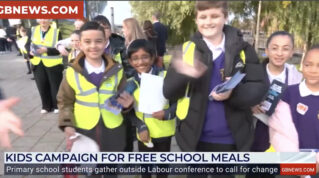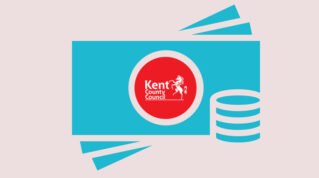Labour plans to remove tax exemptions from private schools would boost public coffers by upwards of £1.3 billion even if some parents move their children into the state sector, the Institute for Fiscal Studies has predicted.
Sir Keir Starmer has set out plans to charge VAT on independent school fees and lift other exemptions currently enjoyed by the sector.
The money would be then used to pay for various initiatives for state schools including incentives for teachers and new improvement teams.
Labour previously predicted it would raise £1.6 billion in VAT and £100 million in business rates as a result of the policy, though this was recently challenged by the EDSK think tank which warned the party’s calculations may be £600 million out.
Today, the IfS published its own analysis, predicting the policy would raise tax revenues by around £1.6 billion.
A “small movement” of pupils into state schools would cost between £100 and £300 million, leading to a “net gain” of between £1.3 and £1.5 billion, the think tank concluded.
The analysis used an “effective VAT rate of 15 per cent” based on exemptions and reductions, and also factored-in extra revenues from business rates.
The analysis also excluded nursery pupils and boarding fees, inclusion of which was a source of criticism of previous analyses.
Money saved on fees will be spent elsewhere
The report concluded that charging VAT on fees would have a “relatively limited effect on numbers attending private schools – perhaps a reduction of 3 to 7 per cent in private school attendance”.
But “even that reduction would have limited impact on tax revenues as money not spent on school fees would likely be spent on other goods and services on which VAT would be payable”.
“If some pupils do move to the state sector, extra school spending of about £100 to £300 million per year is likely to be required in the medium to long run.

“But it should be remembered that pupil numbers in the state sector are expected to fall dramatically over the next decade and state schools might therefore welcome extra pupils moving from the private sector.”
The extra tax take from the policy would allow for a 2 per cent increase in spending on schools in England. Labour has pledged to spend this on a number of initiatives, such as improved careers advice and extra-curricular activities.
Private school fees have already risen
The IfS said the share of pupils in private schools in England had been “constant at about 6 to 7 per cent for at least the last 20 years”. This is despite a 20 per cent real-terms increase in average fees since 2010, and a 55 per cent rise since 2003.
The think tank also pointed out the gap between average private fees and state spending had “more than doubled” since 2010, with independent fees now 90 per cent higher than state school per-pupil spending.

Luke Sibieta, a research fellow who wrote the report, said: “The evidence suggests higher fees are likely to have a weak effect on demand.
“As it is, we expect that the change in private school attendance levels will be small. This leads to surer increases in tax revenues and less need for additional public spending on state schools.”
He added that “if the main aim of removing tax exemptions from private schools is to raise revenue, then this is likely to be achievable”.
“If the aim is to encourage more pupils into the state sector and reduce inequalities by school attended, then this policy package is likely to have only minor impacts.”
Labour needs to spend takings ‘carefully’
The research was funded by the Nuffield Foundation, whose director of education Josh Hillman said it showed Labour’s plan “would raise a small but potentially worthwhile sum of money for use in state education”.
“However, to make a significant contribution to reversing the widening gap in achievement between advantaged and disadvantaged pupils, a wealth of other research suggests it would need to be spent carefully on well-targeted funding streams and evidence-based programmes and practices.”
Shadow education secretary Bridget Phillipson said the IfS analysis “reinforces the fact that that all of Labour’s policies are fully-costed and fully-funded, because we take fiscal responsibility seriously”.
But Julie Robinson, cheif executive of the Independent Schools Council, hailed “the second report in less than a month to confirm what we have consistently said: Labour’s policy will not raise the money it claims it would”.
“The IfS itself admits its calculations on pupil movement are uncertain and based on limited evidence – we believe the number moving from independent schools will be much higher in practice.”
















Your thoughts